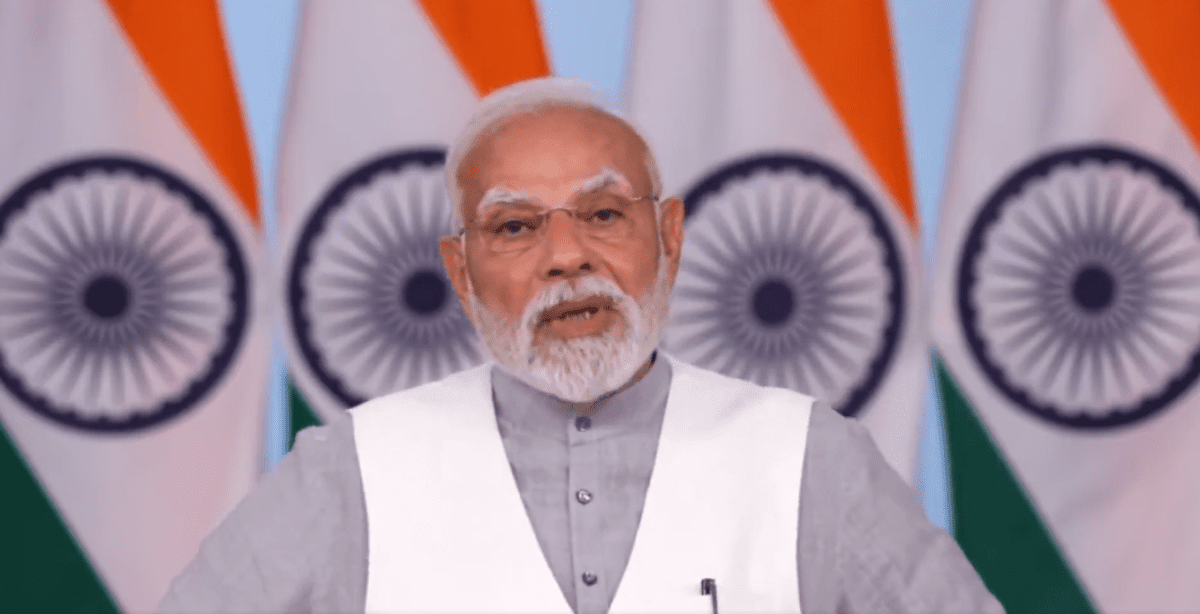Prime Minister Narendra Modi on Thursday shared an article by Union Minister for Ports, Shipping, and Waterways Sarbananda Sonowal, detailing how India’s growing and resilient industrial base – powered by the ‘Make in India’ initiative – and efforts to modernise, mechanise, and digitise ports are providing the nation with a unique strategic advantage along the busy east-west trade route.
In a post on X, PM Modi said, “In this must-read article, Union Minister Shri Sarbananda Sonowal explains how a growing and resilient industrial base with ‘Make in India’ impetus and efforts to modernise, mechanise, and digitise ports along the busy east-west trade route have provided the country with a unique advantage. He highlights that the government’s $8 billion package to rejuvenate India’s shipbuilding and maritime ecosystem is not a routine budget line, but a signal of ambition.”
Earlier, Sonowal posted on X, “Hon’ble PM Shri Narendra Modi ji led Government’s $8 billion package to reimagine, revive and rejuvenate India’s shipbuilding and maritime ecosystem is not a routine budget line, but a signal of ambition. I explain how India can lead the global shift to green shipping.”
In his article, Sonowal noted that a “quiet revolution” is underway across the global maritime industry, with nations moving rapidly toward decarbonisation. As the world tightens emission norms and transitions to low-carbon shipping, India, he said, stands at a “rare confluence of opportunity and capability.”
Highlighting India’s structural advantages – including one of the lowest renewable energy costs globally, a robust industrial base, and skilled maritime manpower – Sonowal said these strengths can help India lead the global green maritime transition.
The Minister emphasised that the recently approved ₹69,725 crore ($8 billion) maritime package is a historic step aimed at reimagining and rejuvenating India’s shipbuilding and port ecosystem. “This is not a routine budget line, but a signal of ambition — a commitment that India will take a meaningful role in the global shift to low-carbon shipping,” he wrote.
Sonowal outlined that the initiative aims to position India as a key player in the emerging green maritime economy by developing “green-ready” ports. Country’s three major ports Deendayal Port Authority (Gujarat), V.O. Chidambaranar Port Authority (Tamil Nadu), and Paradip Port Authority (Odisha) have been recognised as Green Hydrogen Hubs under the National Green Hydrogen Mission (NGHM) earlier this month. These ports have infrastructure and potential to serve as future hubs for green fuel production and bunkering.
The article also underscored the importance of green shipping corridors – both domestic (like Kandla-VOC) and international (linking India with Singapore and Rotterdam) – to aggregate demand for green fuels and attract investments.
Sonowal said the creation of a full-fledged green maritime ecosystem would not only advance environmental goals but also bring “commercial and strategic gains” – boosting exports, generating skilled employment, and ensuring India’s ports remain competitive in a carbon-constrained global economy.
He concluded by noting that India’s $8 billion maritime initiative demonstrates the government’s resolve “not just to adapt to a changing world but to shape it.”














